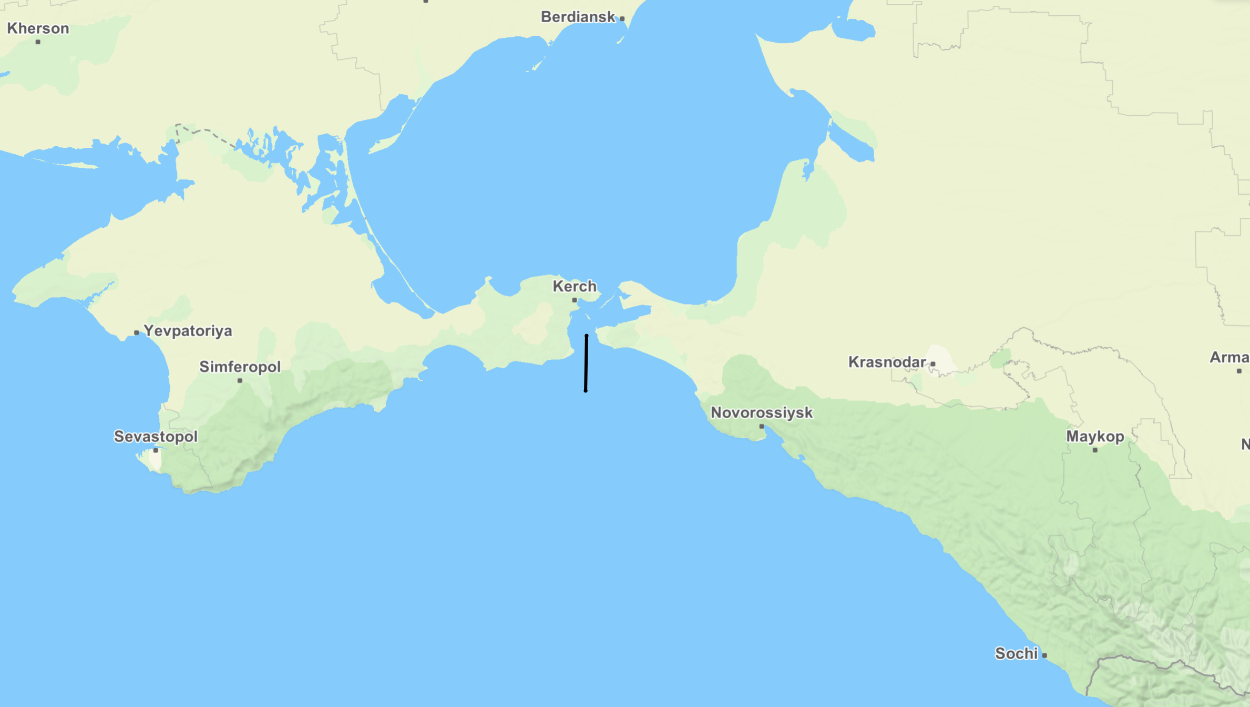Severe Oil Spill in Black Sea After Tanker Disaster Sparks Environmental Crisis

Fuel oil has washed ashore across dozens of kilometres in Krasnodar Krai.
SUKHUM / AQW’A — A large scale ecological disaster is unfolding in the Black Sea following the sinking of two Russian tankers, Volgoneft-212 and Volgoneft-239, during a severe storm on 15 December. The accident occurred in the Kerch Strait, spilling significant quantities of petroleum products into the sea and causing widespread contamination of the coastal areas in Russia's Krasnodar Krai region. Experts warn it could become one of the largest environmental disasters in the Black Sea's history.
According to Veniamin Kondratyev, the governor of Krasnodar Krai, the oil spill has polluted several dozen kilometres of coastline, stretching from the village of Veselovka in the Temryuksky District to the village of Blagoveshchenskaya near Anapa. Morning monitoring revealed extensive oil patches along the shore, with local residents reporting birds and other animals covered in oil, unable to fly or move. The air in affected areas is reportedly filled with the strong stench of oil, causing nausea and eye irritation among those living nearby.
Fuel oil has washed ashore across dozens of kilometres in Krasnodar Krai, from Veselovka to Blagoveshchenskaya, governor Kondratyev confirmed.
The environmental impact is already significant, with local communities discovering seabirds and domestic animals drenched in oil. Experts warn that the spill could cause lasting damage to marine ecosystems and local wildlife if not promptly addressed. Greenpeace has expressed concerns that if the entire cargo, amounting to approximately 8,000 tonnes of fuel oil, leaks into the sea, it could become one of the largest environmental disasters in the Black Sea's history.
Emergency response teams are currently working to mitigate the damage. Operational headquarters have been established in two municipalities, with a coordinated effort involving 267 specialists, volunteers, and 50 units of heavy equipment. Governor Kondratyev has pledged to mobilise additional resources if necessary to combat the growing crisis.
Rescuers have begun cleaning up the aftermath of the oil spill in Anapa and the Temryuksky District.
Greenpeace and other environmental groups have criticised the use of ageing vessels for transporting hazardous materials. Both tankers involved in the spill were part of an older fleet designed for riverine and coastal routes. Compounding concerns, the tankers had reportedly disabled their tracking systems for 12 days before the incident, raising questions about the oversight of their operations. Critics argue that Russian officials neglected to address these safety issues prior to the disaster, exacerbating the scale of the environmental crisis.
Leonid Glushak, regional chairman of the Russian Seafarers' Union, explained that Volgoneft tankers are primarily designed for river navigation and are ill-suited for operating during winter storms in open waters. Waves reportedly reached heights of 3-4 metres, which proved hazardous for vessels of this class.

Kerch Strait, where the sinking of two tankers triggered a severe oil spill, threatening one of the largest environmental disasters in the region's history.
The incident has prompted Russian authorities to open criminal investigations into the causes of the disaster, while the Environmental Prosecutor's Office has begun assessing the extent of contamination on Krasnodar Krai's beaches.
Local residents and environmental activists are calling for urgent action to prevent further damage. Specialists are continuing their monitoring efforts and oil clean-up operations, but the long-term consequences for the region's ecology remain a growing concern.